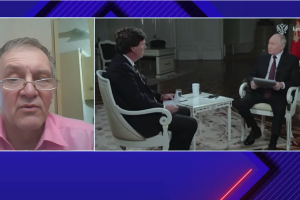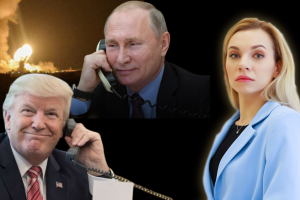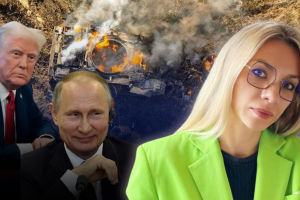Oleksiy Haran: “Some things are unacceptable”
Last week, Vitold Fokin, the deputy head of Ukraine’s delegation to the Trilateral Contact Group (TCG) provoked massive public backlash after he claimed that he hadn’t seen “any confirmation” of a war going on between Russia and Ukraine (for more details, see our September 25 issue).
 President Zelensky dismissed Fokin the very next day, but the scandal itself could have a lasting, negative impact, argues political scientist Oleksiy Haran in a conversation with Novoye Vremya. “Fokin’s appearance, his scandalous statements, and his quick resignation are just symptoms of deeper problems,” he says.
President Zelensky dismissed Fokin the very next day, but the scandal itself could have a lasting, negative impact, argues political scientist Oleksiy Haran in a conversation with Novoye Vremya. “Fokin’s appearance, his scandalous statements, and his quick resignation are just symptoms of deeper problems,” he says.
The way Haran sees it, Ukraine’s TCG delegation has been taking very few concrete steps: he singles out former president Leonid Kravchuk as a prime example of a delegate appointed to “play the role of a talker” and “give the impression that something is being done.”
Meanwhile, mixed messages from a delegate in Fokin’s position only serve to further weaken Ukraine’s position in diplomatic negotiations with Russia, giving Moscow a renewed opportunity to present the conflict as a “civil war” in Ukraine. From Haran’s perspective, this is entirely unacceptable — as are any and all made concessions to the Russian side.
Indeed, he opposes “surrendering our positions in the negotiation process” even if changes to Ukrainian diplomacy are intended to “show that Kyiv wants peace.” “At first, Zelensky thought the war wasn’t over because Poroshenko didn’t want this peace. So Zelensky started to make concessions. Some were justified — he was trying to add momentum — but what we see is that Putin doesn’t want to make concessions, and when he leaves it will only be on his terms,” Haran warns.
He also argues that Kyiv taking a hardline in the Donbas negotiations is actually what the population wants, despite the fact that this hasn’t been Zelensky’s position so far. “Most Ukrainians are against peace at any cost,” Haran concludes. “70% of people [...] say we need not accept Putin’s terms. This isn’t a ‘militant minority,’ it’s the majority.”
Source: BMB Ukraine








